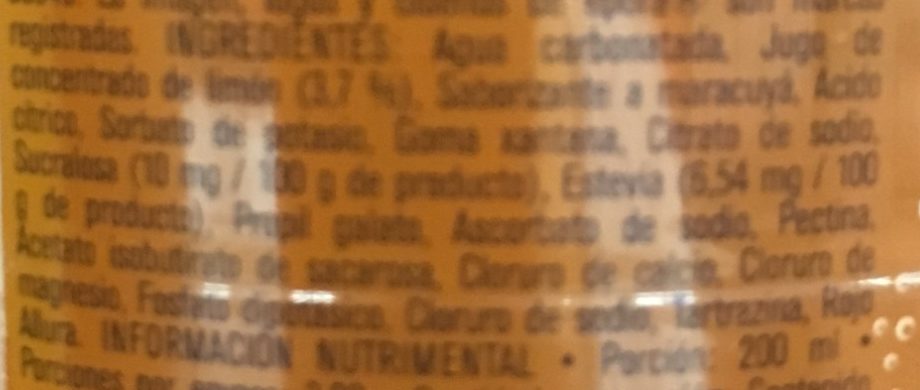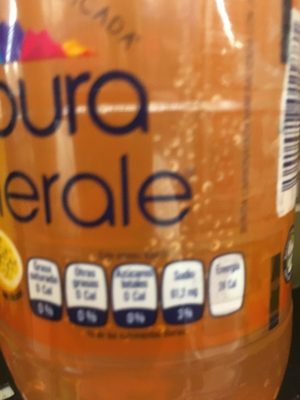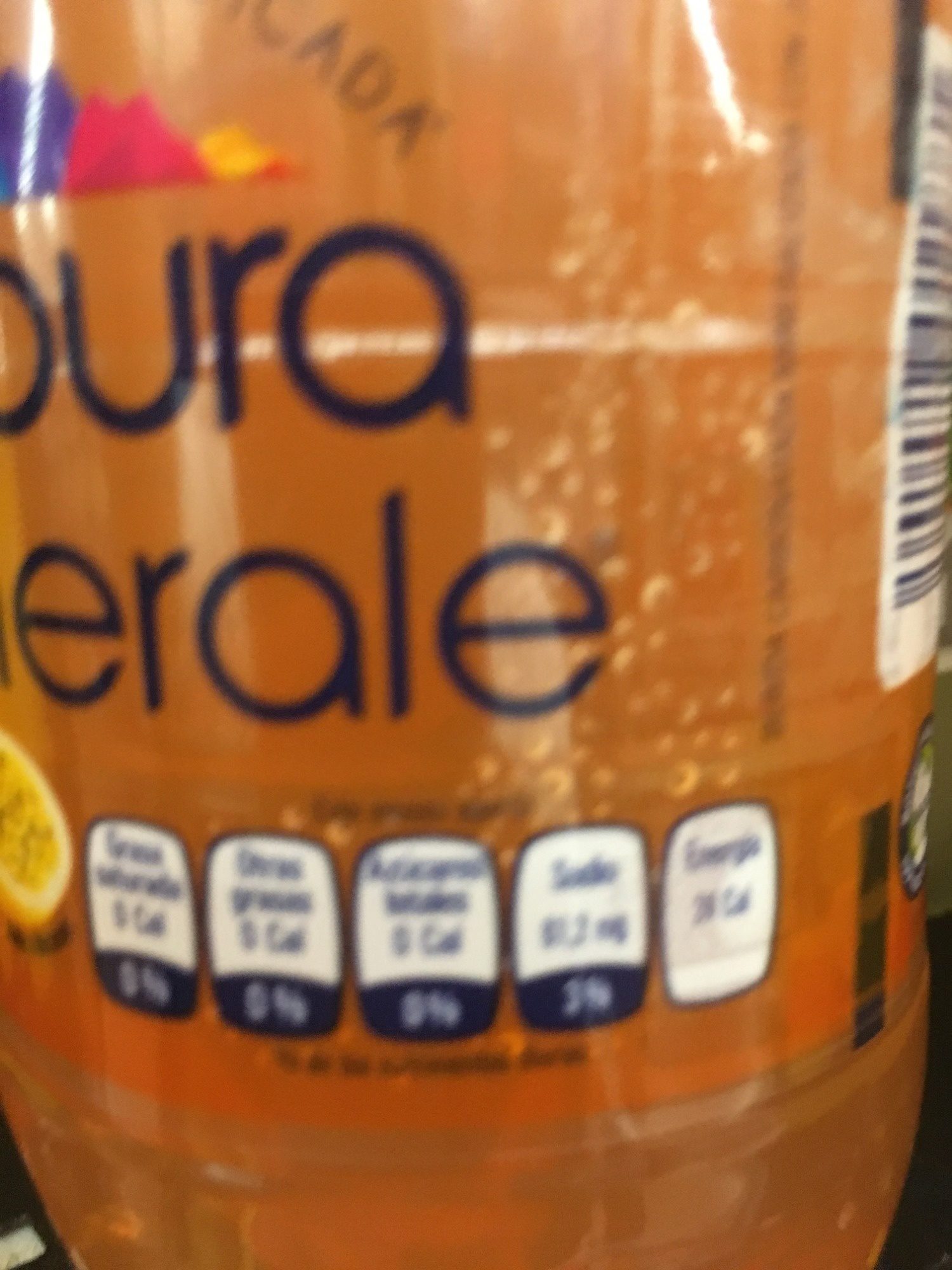e Pura Minerale Maracuya - 600 ml
This product page is not complete. You can help to complete it by editing it and adding more data from the photos we have, or by taking more photos using the app for Android or iPhone/iPad. Thank you!
×
Barcode: 7501022011881 (EAN / EAN-13)
Common name: Bebida ligeramente gasificada sabor maracuya
Quantity: 600 ml
Packaging: es:Botella de pet
Brands: e pura
Categories: Beverages, Carbonated drinks, Waters, Carbonated waters, Flavored waters, Flavored sparkling waters
Origin of ingredients: Mexico
Manufacturing or processing places: Ciudad de México
Stores: Walmart, Soriana, Sams Club, Oxxo, La Comer
Countries where sold: Mexico
Matching with your preferences
Environment
Packaging
Transportation
Report a problem
Data sources
Product added on by openfoodfactsmx4
Last edit of product page on by packbot.
Product page also edited by sebleouf.









